Report of Working Conditions of Pourakarmikas during Covid 19 Pandemic
Fieldwork conducted during May 20th & 21st, 2020 in 20 Wards of Bangalore
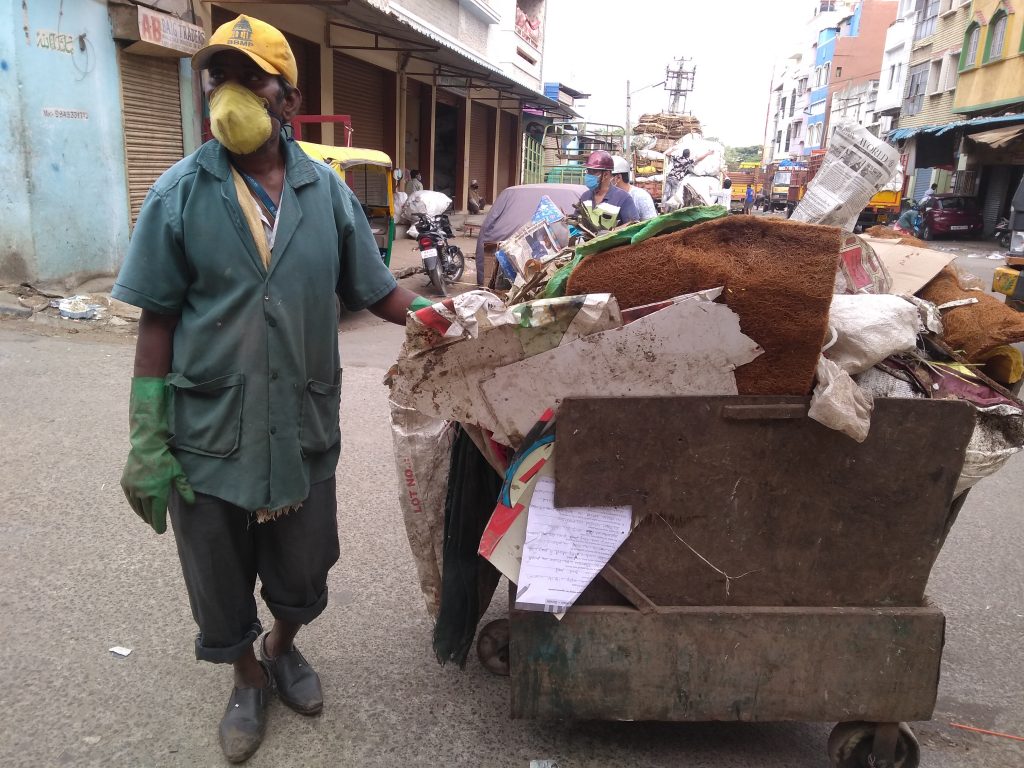
Introduction
This report records the working conditions of pourakarmikas in Bangalore observed at a time when they are working to keep the city clean through lockdown and when illness from Covid-19 is being reported to have become widespread. While conducting the fieldwork the objective was to find out if the order issued by this Hon’ble Court in WP 46523/2012 c/w WP 24739/2012 and directions issued from the Ministry of Social Justice and Empowerment, Government of India, especially the one dated 20th April 2020, are being observed to protect the pourakarmikas from being exposed to Covid-19. These directives categorically instruct it is the duty of civic agencies to protect pourakarmikas from any risk of contracting diseases due to the work they do. And these directives required pourakarmikas and other sanitation and health workers are provided with appropriate Personal Protective Equipment. Our report reveals that in all aspects the Bruhat Bengaluru Mahanagara Palike failed.
Observations
From fieldwork conducted in 20 wards of Bangalore, it was observed that the situation continues to remain apathetic to the welfare of Pourakarmikas, and most particularly evident in the lack of providing appropriate protection. It was also observed that the guidelines listed in the Ministry of Social Justice and Empowerment’s advisory, issued on 20th April 2020, were being disregarded with impunity.
Appropriate protection not provided:
Conversations with the Pourakarmikas revealed that they have been given only two to three sets of gloves and masks and just a bottle of sanitiser along with a reflective jacket to be worn over their clothing. Most persons who were interviewed said that they have not been provided with any shoes. Some who have received shoes said that they were not gum boots as the Ministry of Social Justice and Empowerment advisory mandates. Not a single Pourakarmika was seen to be wearing gum boots while at work, in any of the wards.
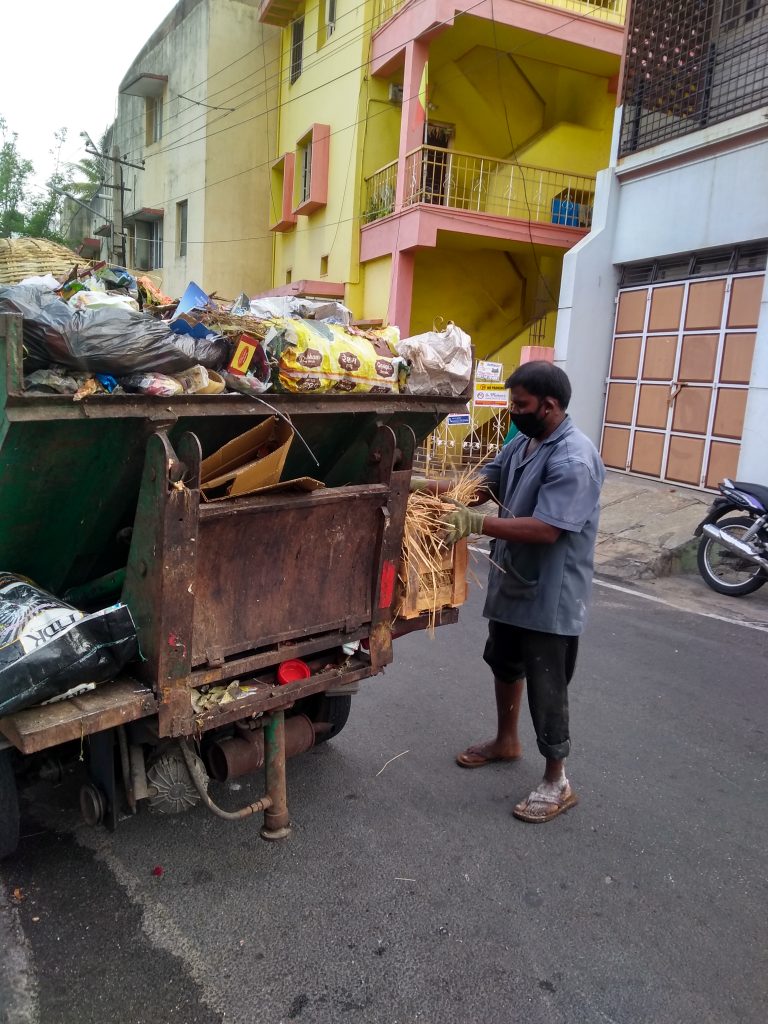
No briefing on risks involved:
The same Ministry circular directs civic agencies to mandatorily brief workers on the risks they are exposed to when working during Covid 19 pandemic. The fieldwork revealed that no orientation sessions have been held to inform the sanitation workers about the dangers of the virus and why appropriate protection is a necessity in such times. They had not been briefed at all about maintaining physical distancing, avoiding touching their faces, the importance of wearing safety gears at all times while handling waste, the appropriate way of storing gloves and masks, how to disinfect themselves, etc. Because only two or three sets of gloves and masks have been provided, the workers have been forced to wash and re-use them.
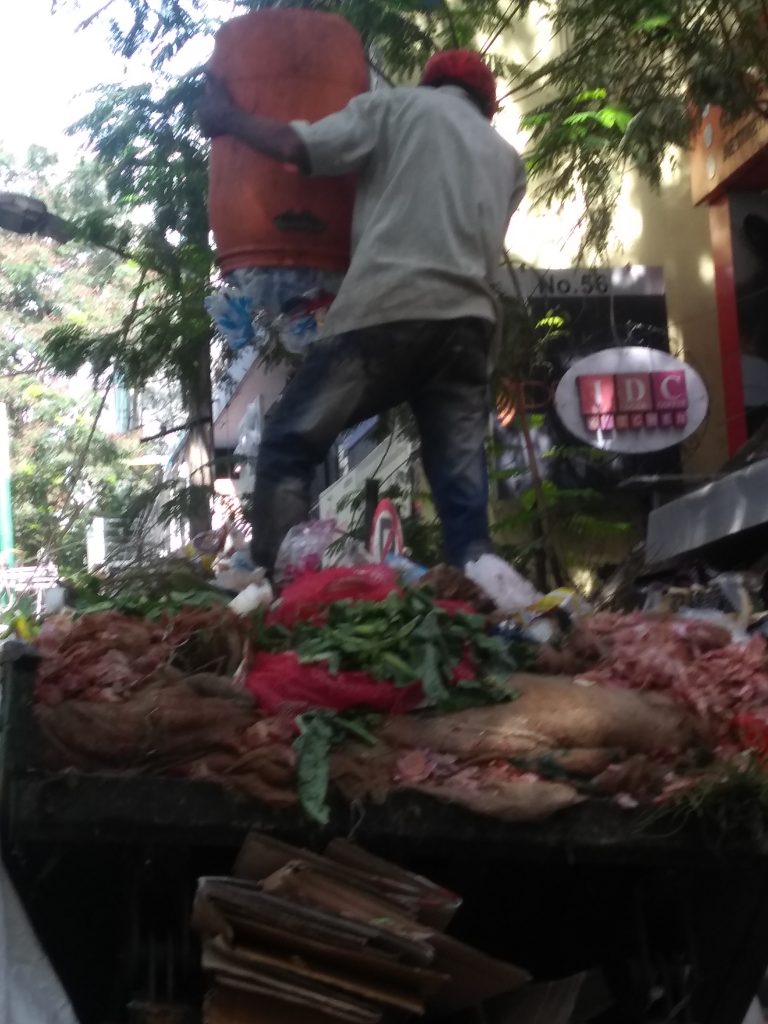
No appropriate work equipment provided:
The quality and make of the masks, gloves and shoes were also observed to be creating hindrances in their work. The interviewed persons said that the woollen gloves are making it difficult for them to handle brooms and wet waste. Also, the cloth masks were making it difficult for workers to breath when at work, which involves very hard physical labour. In addition, the lack of any appropriate work equipments made their work even more challenging when wearing poorly designed masks. They were, in any case, not N-95 masks.
As a result it was observed that a number of sanitation workers had removed the gloves and masks while working and were also seen touching the wastes with their bare hands. We were also informed, especially by the women workers, that the lockdown has made it particularly difficult for them to find drinking water, toilets and changing rooms. No one spoken to said that they have access to designated changing rooms.
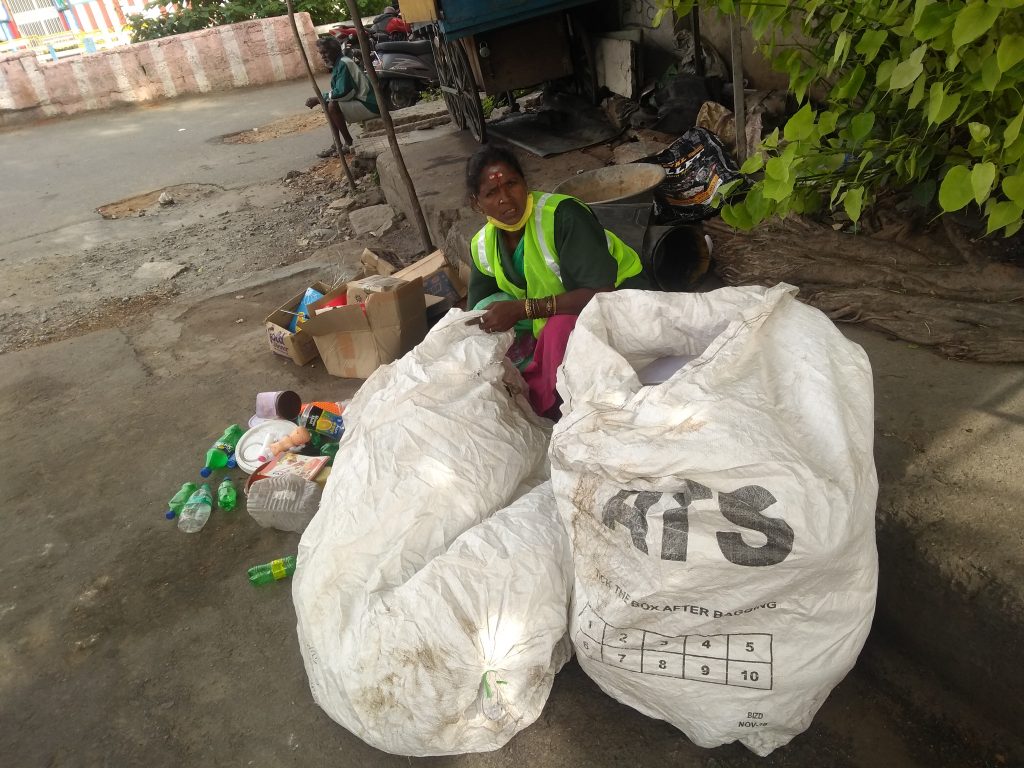
Containment zones focus to the exclusion of the city:
Bangalore currently has 3183 containment zones. During the time this survey was conducted, the city had declared 19 wards as containment zones. It was noticed that except for Hongasandra ward, pourakarmikas from none of the other containment zones have been provided with PPEs. The protocol for collecting biomedical waste was being followed only for hospitals when it should have been implemented for homes as well, especially for those houses that are in containment zones and where persons in quarantine are housed.
Condition of contract workers even worse:
The condition of the contract workers who are mostly the tipper van drivers and helpers were found to be even worse off than the pourakarmikas. They not only have been denied provision of bare minimum protection in the form of gloves, masks and shoes, many have not been paid salaries for several months by the contractors. Therefore, most of them have resorted to working without any form of protection. In KR Market, which was declared as a containment zone, the contract workers told us that they were given masks and gloves by the contractors one full month after the lockdown was declared in the country.
We also observed that due to reduction of work hours, most of the pourakarmikas have to now rely on a member of their family to help with their daily tasks -to cover their normative work in less time. Such workers too were found to be working without wearing any protective gears.
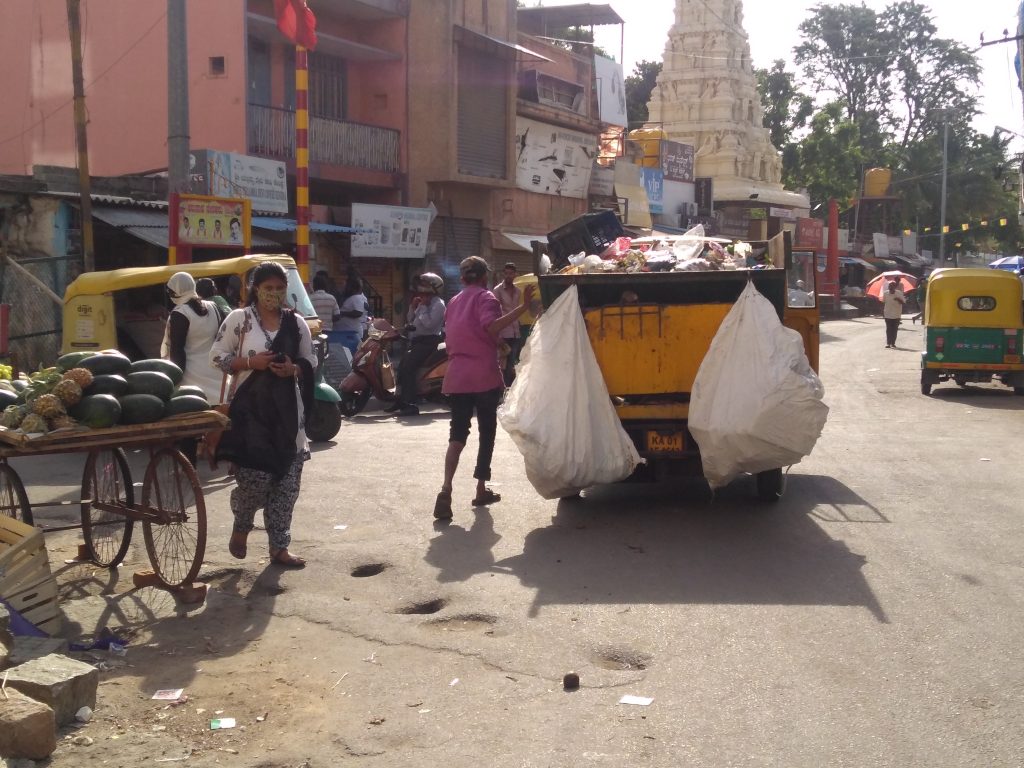
To read the article, “We Clear City Waste”: B’luru Sanitation Staff Demand Covid Test click here

